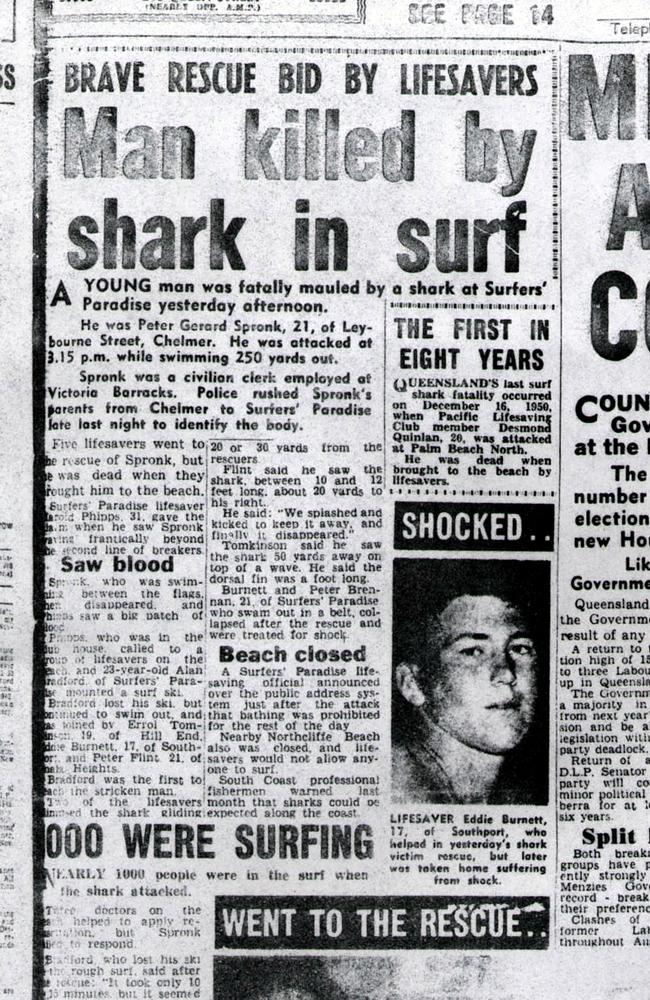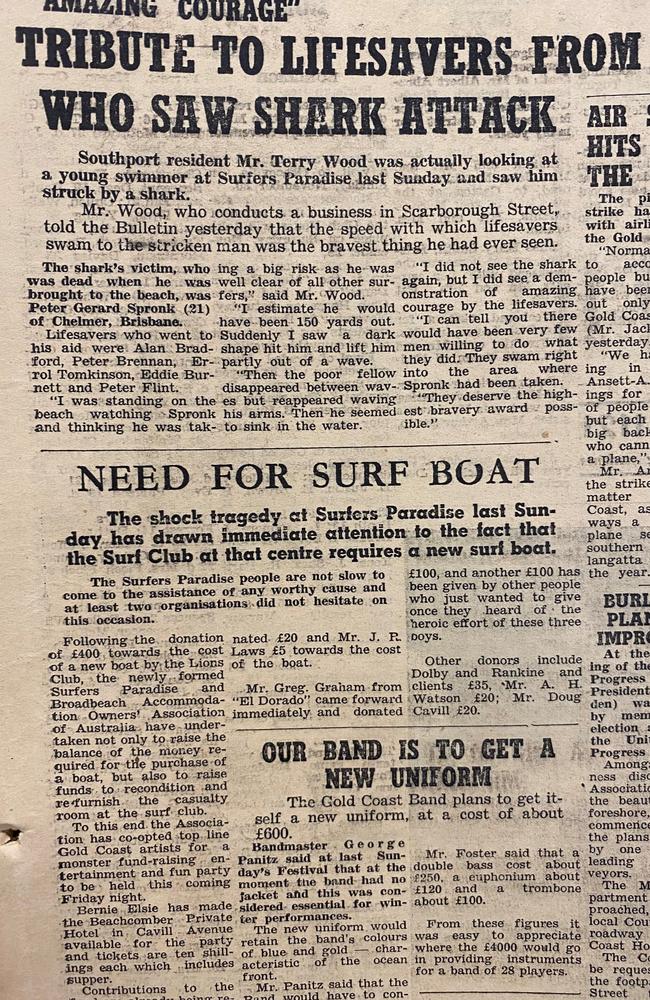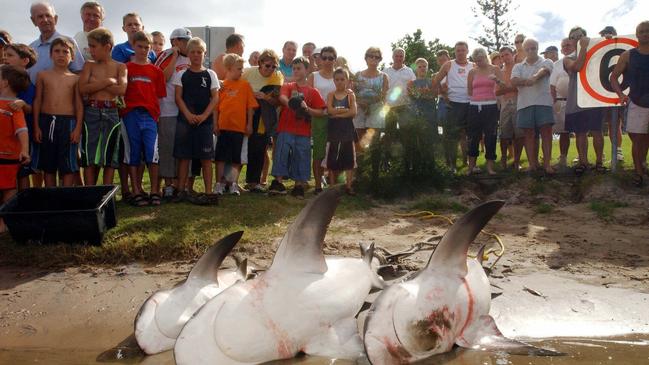Greenmount shark attack: Gold Coast and Tweed’s long history of shark attacks 1958-2020
“As we focused, we saw a big, dark splotch on the surface of the water. We soon realised it was blood.” The horrifying moment a man died on a Gold Coast beach.
Gold Coast
Don't miss out on the headlines from Gold Coast. Followed categories will be added to My News.
THE six-decade reputation of Gold Coast’s beaches as fatality free zones for shark attacks has been shattered by the devastating death of a surfer late yesterday.
The death of the man at Greenmount Beach is the first fatal shark attack to occur on a Gold Coast beach since 1958.
It was just after 3.15pm on November 23, 1958 when Brisbane man Peter Gerard Spronk was mauled by a shark, 250m off Surfers Paradise beach.

Despite the heroic efforts of a team of lifesavers who rushed to his rescue, he died of his injuries in the water
Spronk, of Chelmer, Brisbane was dead when he was brought to shore by lifesavers Alan Bradford, Peter Brennan, Errol Tomkinson, Eddie Burnett and Peter Flint.
Journalist John Hay was on the beach and witnessed the incident, which he said began with the sound of a bell ringing.
“We had been lazing under an umbrella in front of the surf club, having a peaceful day,” he wrote in 2000.
FOOTAGE: HORRIFYING MOMENT SURFER TAKEN BY GREAT WHITE

“When we jumped up, there were swimmers scrambling desperately out of the water and lifesavers dashing in.
“As we focused, we saw a big, dark splotch on the surface of the water. We soon realised it was blood.
“Unbelievably, as the fatal drama was unfolding, casual surfers were re-entering the water, advancing chest deep, ignoring the official pleas to stay ashore for their own safety.’’
Southport businessman Terry Wood witnessed the incident and described the speed at which the lifesavers had reacted as “the bravest thing I have ever seen”.

Speaking to the South Coast Bulletin following the incident, he described the shocking experience:
“I was standing on the beach watching Spronk and thinking he was taking a big risk as he was well clear of all other surfers,” he said.
“I estimate he would have been 150 yards out.
“Suddenly I saw a dark shape hit him and lift him partly out of the wave.
“Then the poor fellow disappeared between waves but reappeared waving his arms but then he seemed to sink in the water.
“I did not see the shark again but I did see a demonstration of amazing courage by the lifesavers.”

The incident sparked a surge of support in the Gold Coast community for a new surf boat to help cover the city’s beaches.
Shark nets were introduced to the Gold Coast’s waters and have long proved a highly controversial measure, particularly because of their impact on whales during the annual winter migration season.
While there were no shark-related fatalities for nearly 62 years, there were several horror attacks across the decades.
In April 1990, surfer Mark Flemming was attacked by a 3m tiger shark at Greenmount Beach while going for a dawn paddle.
The shark pursued the then-31-year-old, tossing him into the air and ramming his board.

The shark pushed him, still attached to his board by a leg rope, through the water for about 27m before the young man was able to escape.
In March 2000, then-27-year-old Main Beach resident Andrew Rojervic was swimming with two friends when the shark attacked from behind.
The shark, believed to be a bronze whaler, bit Rojervic’s left calf down to the bone, leaving him with a 30cm wound stretching from the back of his knee to his ankle.
In December 2002, 23-year-old Beau Martin, 23 was attacked and killed by a shark while swimming in Miami Lake.
Bob Purcell, 84, was killed by a bull whaler just two months later in February 2003 while swimming in Burleigh Lake.
The debate about shark nets and drumlins was revived in June 2020 after the death of Gold Coast surfer Rob Pedretti at Casuarina.


